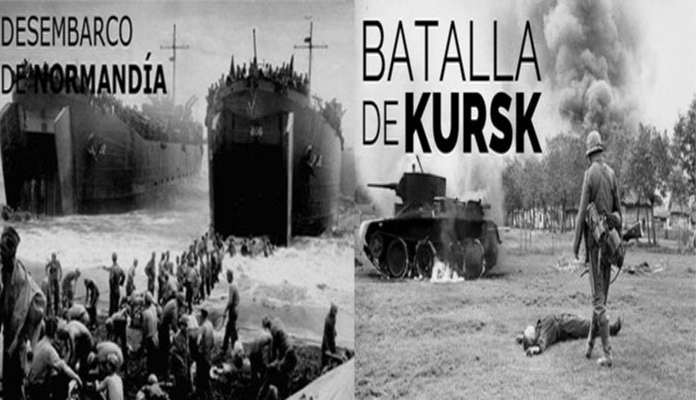
By Guillermo Alvarado
I knew a professor at the university who used to deny the existence of the philosophy of history because, he claimed, the way it is told represents only one of the many existing perspectives on an event and, usually, it is that of the victors or the victors. dominant layers.
Rarely, he pointed out, is the point of view of the defeated, of the losers, of those who played a secondary role in the great dramas or the glamorous victories of this world, and the few times when this happens they are painted in the colors darker and the lines less harmonious.
This came to mind when I was reading about the commemorations for the 80th anniversary of the famous Allied landing on the French beaches of Normandy, which brought together presidents, heads of government and even a king, the British Charles III, in that area.
Grandiloquent but not exact phrases were uttered, such as the well-worn one that that day was “the longest day,” or that the backbone of the Nazi German army was broken there and the end of the war began.
It is true that thousands of people from many countries gave their lives during the landing, a gesture that would not be fair or honest to ignore.
But the fatal blow to the brown plague, as Adolf Hitler's armed forces were called, did not occur in that place, nor on that date.
He had been executed a year earlier, on August 23, 1943, when the legendary battle of the Kursk Arch ended, where the Red Army delivered a strategic defeat to the Third Reich on the soil of the Soviet Union, from which it was never able to overcome.
The actions began on July 5, the date on which Germany put all its might in an attempt to regain the initiative in the war after its disaster at the Battle of Stalingrad, but failed completely.
That was actually the turning point in the Second Universal Armed Conflict, since from there the Soviet troops began an offensive that did not stop until the taking of Berlin, on May 2, 1945.
In fact, it was these events that hastened the Allied landing in France, long delayed with different excuses, until the Western military leaders realized that they were late arriving in Germany.
The conflict between General Charles de Gaulle and his colleagues is legendary because they did not want to stop and take Paris, in their mad race towards Berlin, where the Soviets were already there.
The USSR carried the heaviest burden of the war on its shoulders, but others gather to celebrate victories that they claim as their own. Ah, the story.

